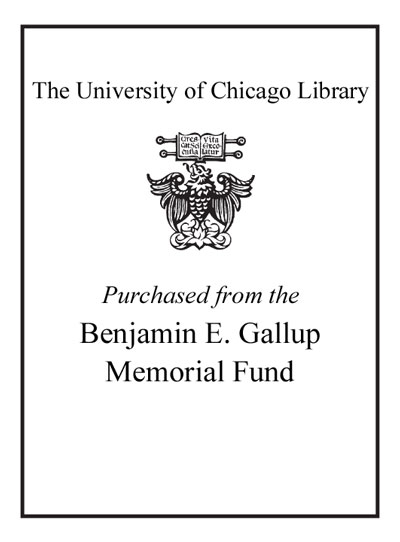Review by Choice Review
Williams's well-researched book profiles six carefully selected civil rights leaders who exemplify the all-important concept of "service leadership." These six figures--A. Philip Randolph, Frederick D. Patterson, Thurgood Marshall, Whitney M. Young, Adam Clayton Powell Jr., and Fannie Lou Hamer--clearly provided "a selfless desire to be of genuine service" to their community. Williams states that his primary purpose "is to discover what qualities and principles, what traits and characteristics authenticated ... the leadership authority of a group of individuals" who furnished valuable "models of effective black leadership." This highly useful book is arranged to fit well with varied formats such as seminars, workshops, symposiums, and the like. Its chief merits consist of original organization of ideas and material, excellent writing style, and powerful analysis of constructive leadership ideas. Many black intellectuals undoubtedly share Williams's assessment that present-day black America could use "service leadership." Clearly, the book is essentially designed to use history as a means of shaping effective leadership in the African American community. All levels. W. T. Howard; Bloomsburg University of Pennsylvania
Copyright American Library Association, used with permission.
Review by Booklist Review
What characteristics and commitments did civil-rights movement leaders share--and what do those traits and beliefs reveal about the roots of their effectiveness? Educator and writer Williams sketches African American history from Reconstruction to the 1960s and describes major leadership theories; she then profiles "forerunners" (A. Philip Randolph and Frederick D. Patterson), "negotiators" (Thurgood Marshall and Whitney M. Young Jr.), and "provocateurs" (Adam Clayton Powell Jr. and Fannie Lou Hamer), and studies the implications of this past for those who would "claim the legacy" in the twenty-first century. Drawing on biographies and memoirs as well as civil-rights movement histories, Williams seeks to isolate the critical similarities and differences displayed by these leaders to stimulate thought and discussion in communities and in classrooms. (Part 4 of the book--"Supplement for Teachers and Future Leaders" --offers "Lessons for Leaders" and a chronology as well as detailed notes and a bibliography.) Not an essential acquisition for every library, but a helpful supplement where leadership issues are being debated. --Mary Carroll
From Booklist, Copyright (c) American Library Association. Used with permission.
Review by Publisher's Weekly Review
Apparently aimed at the classroom, this book is a useful, if dutiful, set of sketches of six civil rights-era leaders layered with reflections on their leadership qualities. Williams, a special assistant to the president at Bennett College (Greensboro, N.C.), bases her book on biographies and autobiographies of A. Philip Randolph, Frederick D. Patterson, Thurgood Marshall, Whitney M. Young, Adam Clayton Powell Jr. and Fannie Lou Hamer. The author deems labor leader Randolph and Patterson, the president of Tuskegee Institute and founder of the United Negro College Fund in 1944, as "forerunners." Marshall, who argued against school segregation before the Supreme Court in Brown v. Board of Education, and Young, executive director of the National Urban League, were "negotiators," though Williams acknowledges that Young strayed from the grassroots. Finally, he dubs the charismatic, though morally suspect, Powell, a congressman from Harlem, and Mississippi protest leader Hamer "provocateurs"; Williams notes that Hamer's crusading "servant leadership" is rare. The author's conclusions, and reflections on current black leadership, are mostly unexceptional. Most interesting are her acknowledgment of the tension between the leaders' democratic ideals and less democratic means they sometimes employed, and her critique of the "patrimonial paradigm" that excluded women. The book includes a supplement for teachers. (Jan.) (c) Copyright PWxyz, LLC. All rights reserved
(c) Copyright PWxyz, LLC. All rights reserved
Review by Choice Review
Review by Booklist Review
Review by Publisher's Weekly Review

